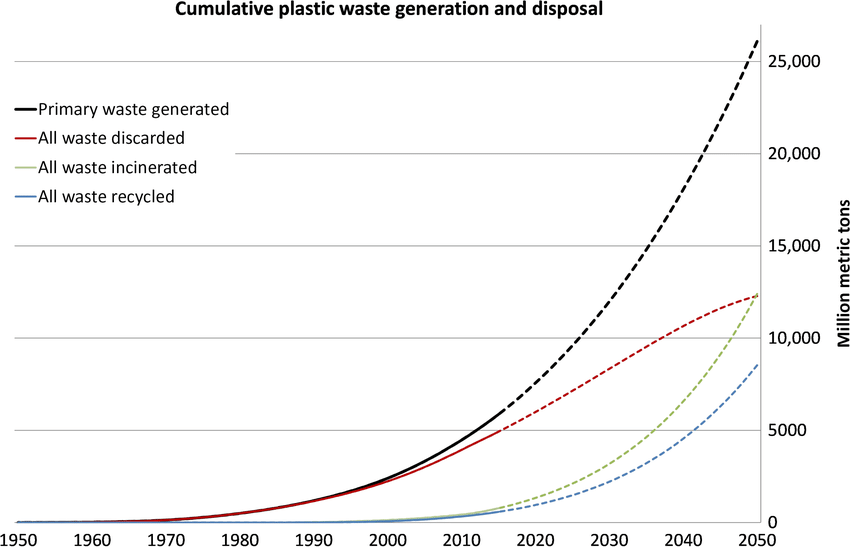Plastic waste burns all night in the small Malaysian town of Jenjarom, causing locals to cough and lose sleep. Businesspeople came to the area promising to develop an “environmental protection industry”. Instead they brought piles of waste for incineration.
Malaysia is the world’s biggest importer of plastic waste. It replaced China after the country announced a ban on the trade in 2017. But like nearby Thailand, Indonesia and Vietnam, Malaysia is now facing its own environmental pressures.
A recent amendment to the Basel Convention may help end the practice of richer countries exporting their plastic waste to less developed nations where environmental regulations and waste management processes are unable to cope.
The Basel Convention on the Control of Transboundary Movements of Hazardous Wastes and their Disposal came into effect in 1992. It established the principle that harmful waste should be dealt with domestically to prevent it flowing into regions with lax oversight. The amendment has added most types of plastic waste to the hazardous wastes already covered.
What’s happened since the China waste ban?
After China informed the World Trade Organisation that it would no longer accept plastic waste shipments, imports to Thailand, Vietnam, and Malaysia grew significantly.
Malaysia’s monthly imports of plastic waste rocketed from 20,000 tonnes in 2016 to 110,000 tonnes in 2018, according to a Greenpeace East Asia report. Thailand was importing less than 10,000 tonnes per month but in April 2018 that figure reached 80,000. Vietnam imported up to 60,000 tonnes each month in 2018, twice as much as in 2016, until restrictions were put in place in 2018.
The plastic waste that countries choose to export is usually more hazardous and of lower value. As nations struggle to deal with it, they have also started to restrict imports. Malaysia has announced a complete ban on plastic waste imports within three years.
The global history of plastic waste
Produced: 6.3 billion tons
Recycled: 9%
Incinerated: 12%
Landfill or elsewhere: 79%
The restrictions are pressuring exporting countries to invest in domestic waste-handling capacity. But as such investments take time, they are also turning to emergency measures such as landfill and incineration. The UK is incinerating more waste and has released its first waste strategy in a decade. Melbourne’s largest waste-handling site could not cope with demand this year, so recyclable plastic was landfilled.
Greenpeace East Asia found that of the world’s 21 largest importers and exporters of plastic waste, exports dropped from 1.1 million tonnes a month to 500,000 tonnes over the course of 2017. Though China’s ban has had an impact, developed countries continue to export in large quantities.
How has the Basel Convention changed?
The amendment to the convention will severely limit the global flow of plastic waste by making transfer across borders more difficult. From 2021, companies will need pre-approval to export plastic waste to any of the 187 countries signed up to the convention, which includes China.
The world’s largest exporter of plastic waste, the United States, has not signed up to the convention so from 2021 it will be unable to legally export any to developing nations. And with OECD nations it will only be able to trade a limited range of plastic waste.
Wastepaper offers an interesting example of the effect that limiting imports can have. Before China banned plastic waste imports it was already refusing some types of solid waste such as wastepaper. This caused imports to plummet and prices to rocket, incentivising papermakers and consumers to use and improve paper-recycling facilities.
Solving the plastic crisis
The amendment was not proposed by plastic-choked developing nations but by Japan and Norway, two plastic waste exporters. However, the fact it received support from all developing nations, including China, shows just how troubled countries are by the plastic crisis.
Academics estimate that since the invention of plastic the world has produced 6.3 billion metric tons of plastic waste. A mere 9% of that has been recycled. Twelve percent has been incinerated and 79% has ended up either in landfill or elsewhere in the natural environment. Once carried into the ocean by rain and rivers plastics degrade into microplastics, which marine life consumes, sending it through the food chain and into our bodies.

Solid lines show historical data from 1950 to 2015. Dashed lines show projections of historical trends to 2050. (Source: “Production, use, and fate of all plastics ever made” – Scientific Figure on ResearchGate)
A failure to stem the growth in plastics production would mean that by 2050 the ocean will contain more plastics than fish by weight, according to an Ellen MacArthur Foundation report.
But relying on the Basel Convention to control the cross-border transfer of plastic waste will not solve the crisis. Instead, the culture of disposability that is a feature of modern lifestyles must be addressed. If we cannot stop the overuse of disposable plastic packaging and boost global sorting and recycling capacity, then all that will be achieved is a slight shift of the problem back from developing nations.
Some countries are facing up to the end of the trade in plastic waste and working towards reducing production at the source. The EU will ban single-use plastic straws and cutlery from 2021, and require 90% of plastic drinks bottles to be recycled by 2029.
China, the first to decline imports of plastic waste, is also trying to restructure its plastics economy. In 2017, the State Council published plans for an “extended producer responsibility” system to cover the entire product lifecycle, from design to recycling. Some parts of China are going even further. The island province of Hainan will ban the production, sale and use of all single-use non-biodegradable plastics by 2025.
The amendment to the Basel Convention has dispelled the notion that plastic waste can simply be exported away. When it comes into force in 18 month’s time some countries may be forced to reckon with their own inability to manage their plastic waste. It may also force a revolution in how plastics are used.







